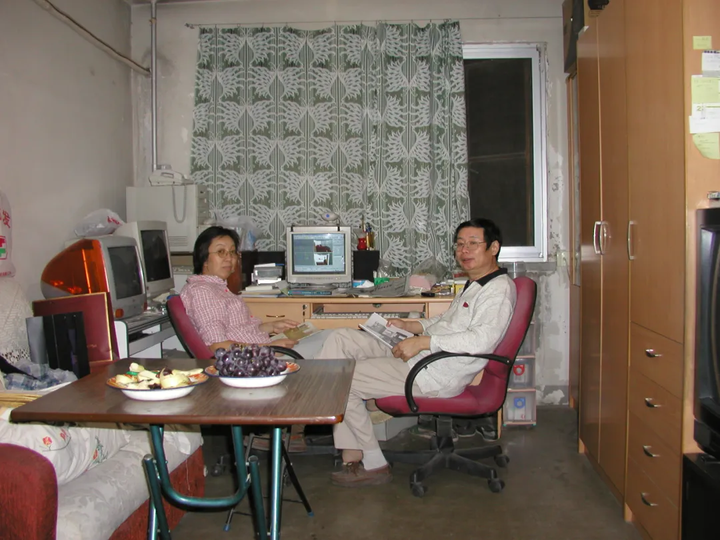I came to New Zealand from China when I was 15, completed three degrees, and now my job involves hidden dangers

Staff Writer: Yima
Image Source: supplied
What is it like to work with psychiatric patients every day?
A Chinese woman who immigrated to New Zealand 15 years ago will share her personal experience with us.
“I thought New Zealand would be as bustling as New York”
Clara is from Shandong, a place where many people stereotype the path for children as either becoming teachers or civil servants.
However, her parents never expected her to follow that route. She was born into a happy civil servant family with stable jobs and open-minded parents who never pressured her to excel academically.
“My parents always hoped I would have less academic pressure. Sometimes they would even find reasons to excuse me from school. They believe happiness is more important than success.”
Since they had relatives living in New Zealand, her parents decided to send her there to study.
Though they had discussed sending her abroad, the specific timing wasn’t confirmed. Clara followed the usual path, taking her high school entrance exam and getting into a good local school.
After a few weeks of school, her parents finalized all the arrangements and told her the departure date. She then focused on improving her English. A few weeks later, at the age of 15, she landed in Auckland as a young international student.
“When I first landed, I was a bit disappointed. In my imagination, New Zealand had skyscrapers like New York. But when I arrived, I was taken aback,” Clara said. Instead of being amazed, her first impression of New Zealand was more of surprise.

"A place without my parents doesn't feel like home"
In addition to the sense of disillusionment, Clara also felt loneliness. "Because my parents weren’t with me, I didn’t have a sense of belonging in New Zealand." Although Clara’s relatives were very kind and attentive, it was still hard for a 15-year-old girl not to feel homesick.
Gradually, Clara made friends at school, especially with a few other Chinese students like her, which helped her slowly adapt to life in New Zealand.
After that, Clara began to integrate into local life. Unlike the intense exam preparation tactics used in Chinese high schools, New Zealand high schools focus more on students' independence and individuality.
With school ending as early as 3:00 p.m., Clara would spend time did exercising, taking walks with friends, and ultimately completing her high school education without the overwhelming pressure.

"A Bumpy Road: Earning Three Degrees Across Different Fields"
After graduating from high school, Clara, who good at math and had a passion for environmental protection, applied to study statistics and environmental science.
She graduated smoothly, but then faced the challenge of finding a job. Her situation was somewhat tricky—many jobs related to environmental science required local residency, and for data statistics roles, having a master’s degree would make job hunting much easier.
With only a one-year work visa, Clara felt anxious and uncertain. At that time, a relative who worked at a kindergarten recommended she give it a try, and unexpectedly, this job opened up a new career path for her.
Clara, with her outgoing personality, found herself thriving in early childhood education, where she worked smoothly and happily.
At the time, the early childhood education field was gaining popularity as a 'good pathway for immigration,' so she applied for the early childhood education program and pursued a new degree.

After graduating, she quickly found a job in early childhood education and successfully obtained New Zealand residency.
Although the job was challenging, it was also very rewarding. However, Clara's heart was never fully settled, she always wanted to explore other career options.
During the pandemic, she experienced a period of anxiety and sought help from a counselor, which she found very helpful. This sparked her interest in studying psychology. At the same time, she had a friend working as a social worker. After hearing her friend’s introduction, she felt that social work aligned with her career aspirations, so she applied for a master’s program in social work.
"Unlike my feelings during the first two degrees, this time I feel more relax. Having gained some social experience, it was also easier to understand many concepts."

"I help find housing for psychiatric patients."
Clara is currently interning at a Mental Health Inpatient Unit, where her main role is to deeply communicate with patients once their mental state has stabilized.
She builds relationships and trust with them to understand their needs, family background, culture, and current living and financial situations, aiming to identify the causes of their mental instability. She then provides various forms of support and develops discharge and life plans for the patients.
Clara’s department is responsible for handling urgent cases of psychiatric patients, many of whom are brought in by ambulance or police car.
Upon arrival, the doctors administer medication to the patients, and once their emotions have somewhat stabilized, Clara communicates with them to gather information and then reports the case to her colleagues.
Unlike the doctors who focus on determining the appropriate medication dosage, Clara’s role is more about understanding the patients' social circumstances: who they live with, whether they feel unsafe, and whether anyone around them is affected by their condition.
During her internship, Clara has encountered people from all walks of life: single mothers whose mental health deteriorated due to drug abuse, new immigrants struggling under the pressure of sending money home every week, and elderly individuals who are alone and have no one to rely on.
Clara has also met many patients who have left a lasting impression on her.
"There was an elderly man , when mentally stable, he was a very warm person, but due to his mental illness, his relationships with people around him had deteriorated, and no one was willing to rent a house to him,it was truly heartbreaking."
In her work, she has felt the humanity of New Zealand’s public system. After patients arrive, they are assigned a dedicated doctor to manage their condition, and social workers provide support for their social needs.
Many times, they even help patients find housing to give them a stable place to live ,and possibly escape the negative influences of their family environment.
However, “no system is perfect.” She candidly admits that sometimes she has doubts. She wonders if the well-developed welfare system has led to some people becoming dependent on it, entrusting their personal lives to the public system.

"The future of my career is still an open game"
Clara enjoys her job a lot, "I look forward to going to work every day."
However, she admits that she isn’t fully ready to commit to doing this job full-time. "I want to give myself one or two years to settle down." Currently, she works as an intern, and while the job is fresh and the pressure is manageable, doing it full-time would be a different story.
This job also carries hidden dangers. Once, she and a colleague visited a patient’s home, where they saw a piece of glass hanging on the door with a note that read, "If you break this glass, I will kill you." Upon seeing this, they turned around and left immediately. "In both Eastern and Western cultures, the best strategy sometimes is retreat," Clara says with a smile. "Many patients keep weapons under their pillows. If their emotions become too intense, the first thing to do is walk away and ensure your own safety, then come back to talk once they’ve calmed down."
Clara, who came to New Zealand at the age of 15, has now lived in the country for 15 years. She has built a family here and plans to continue advancing her education in the mental health field, exploring new paths in this wide landscape of life.




